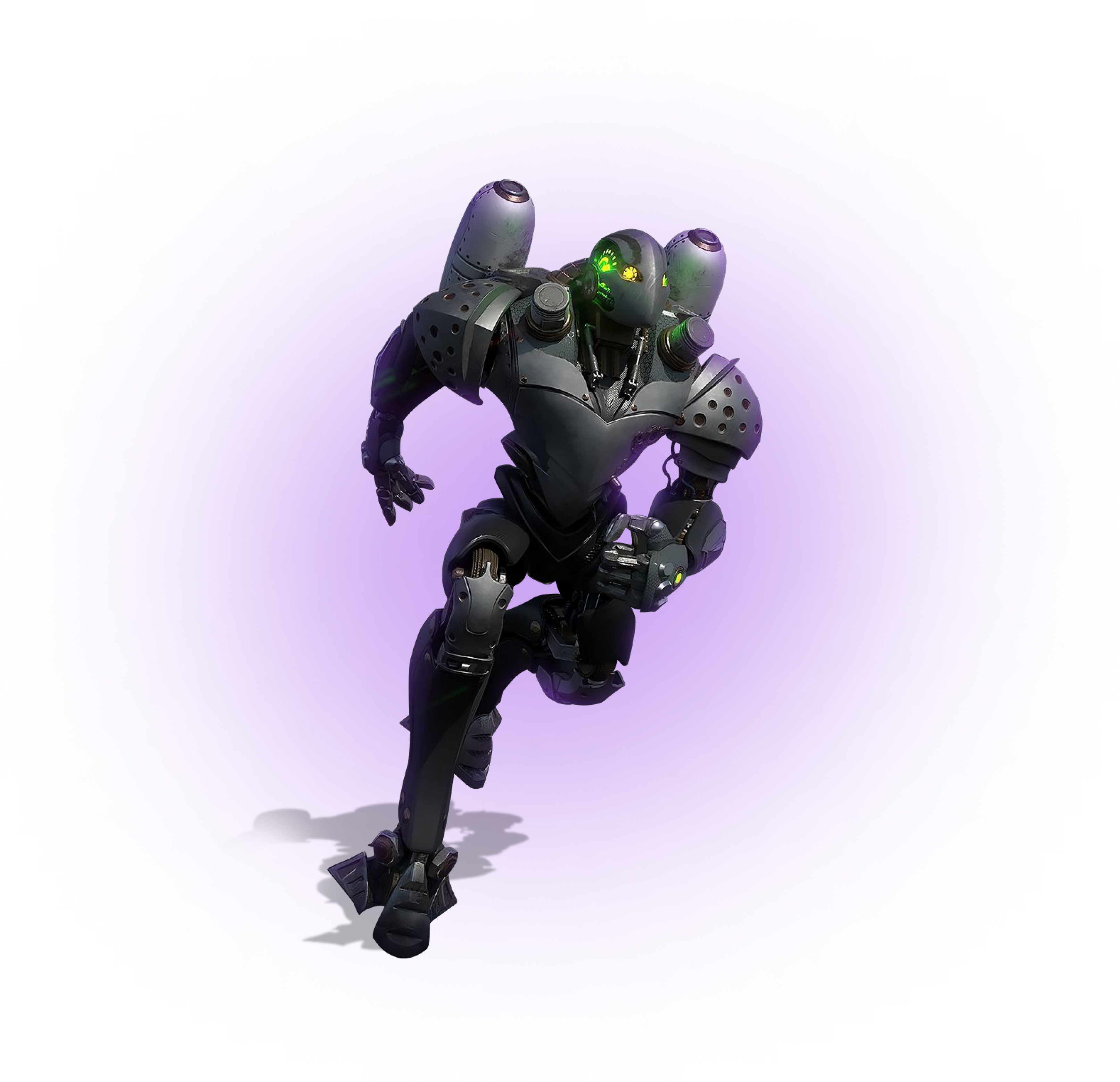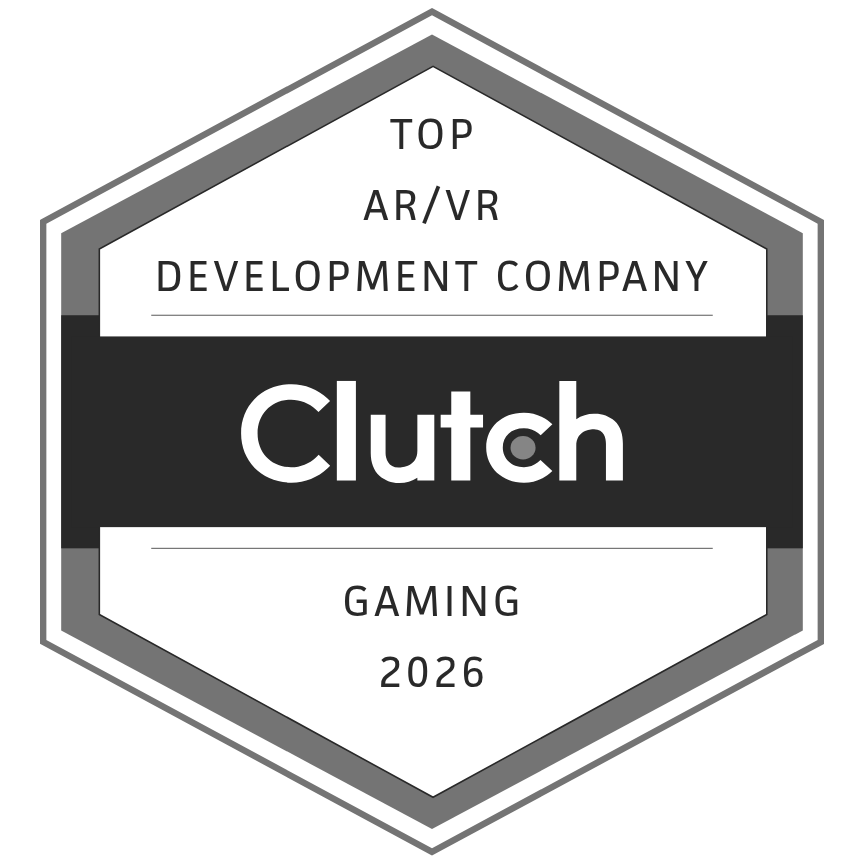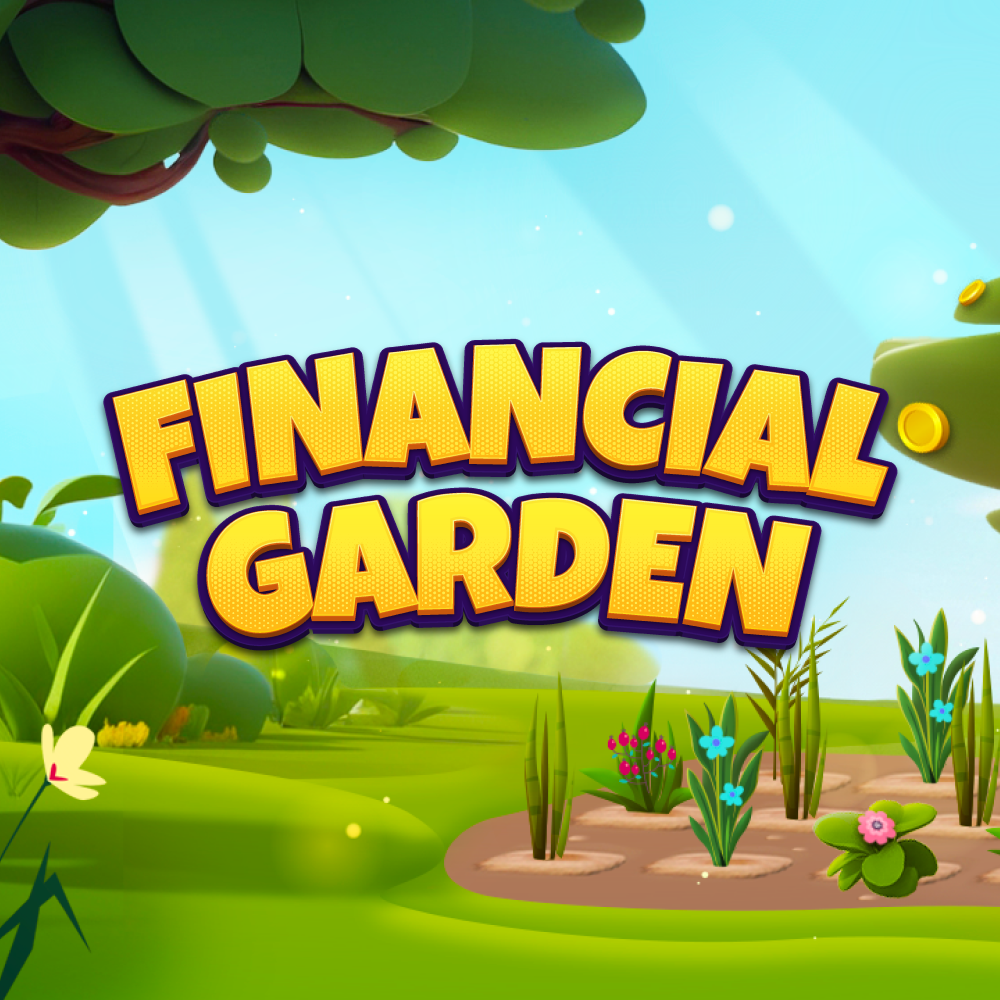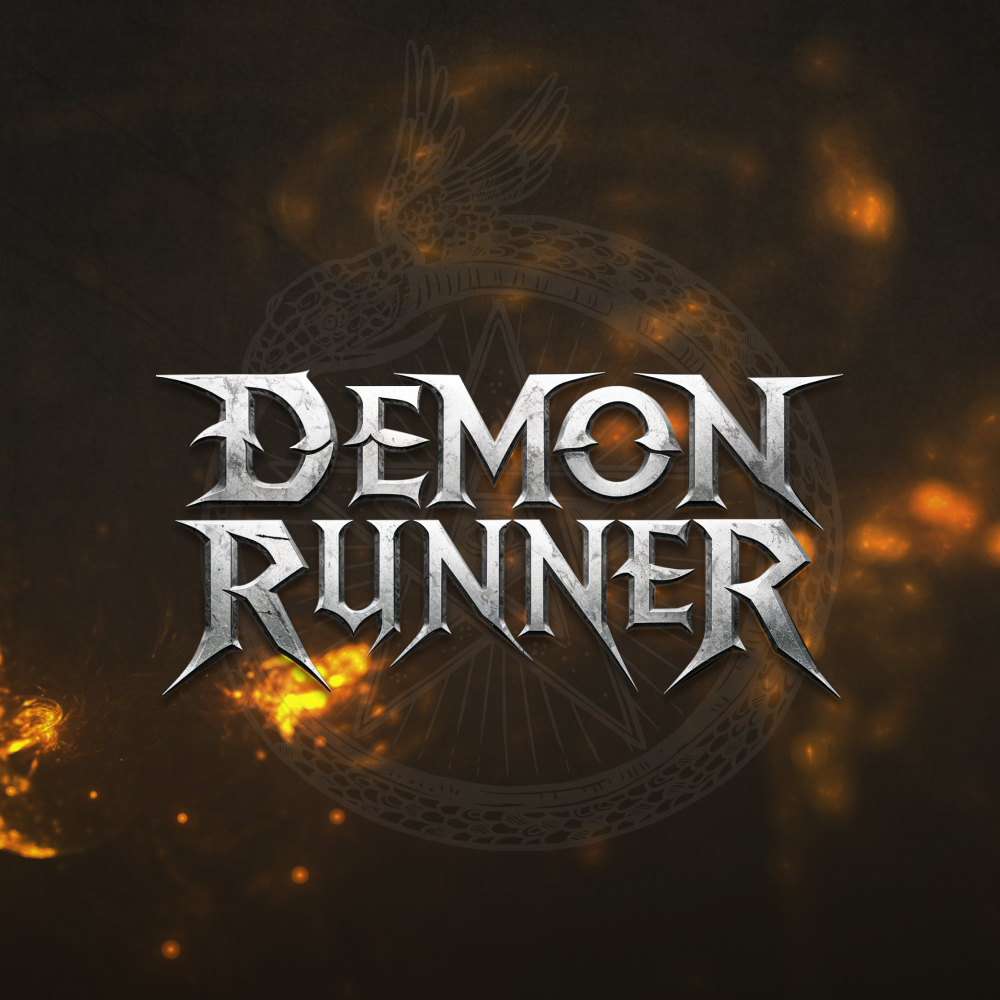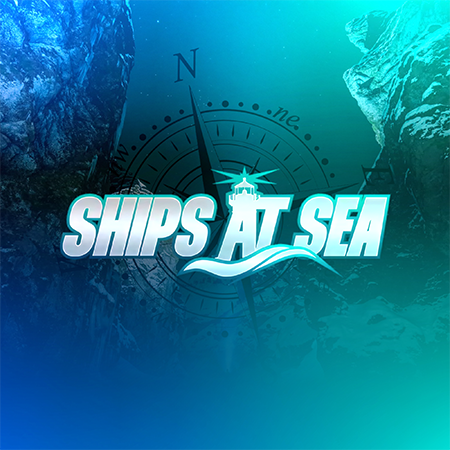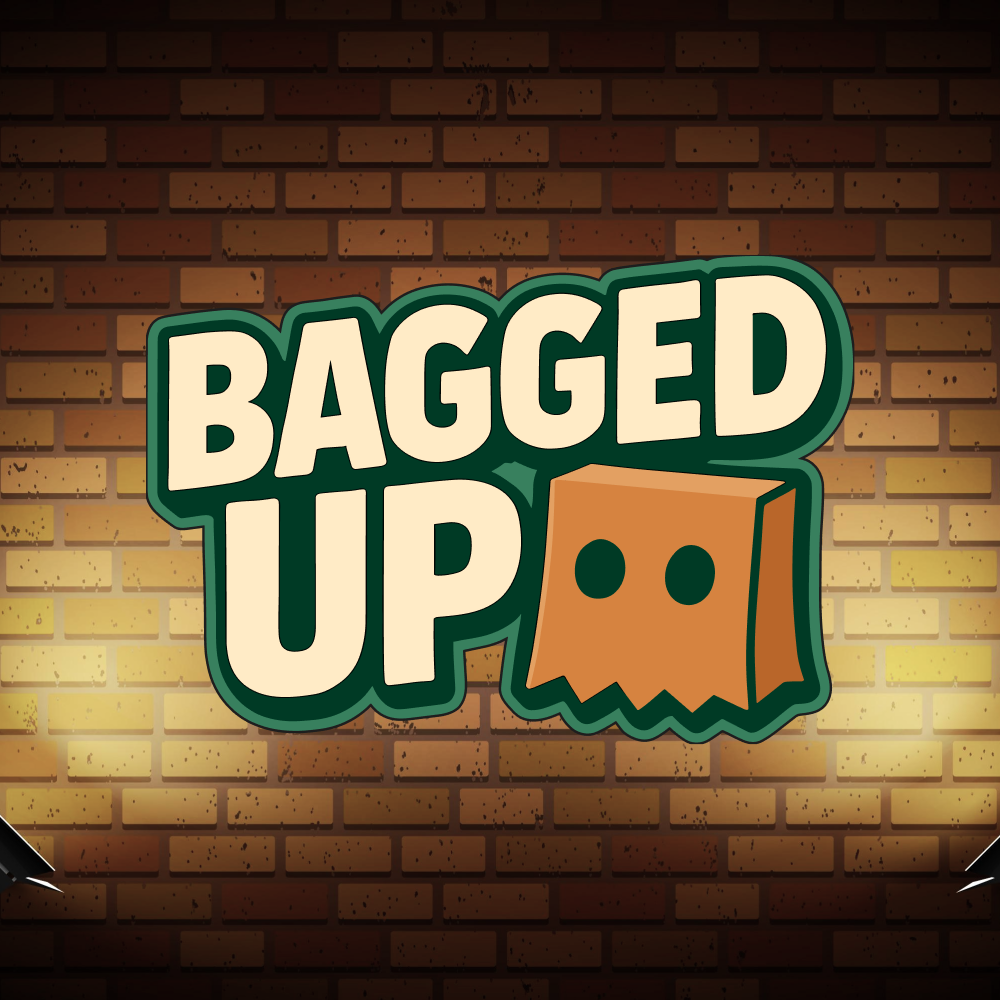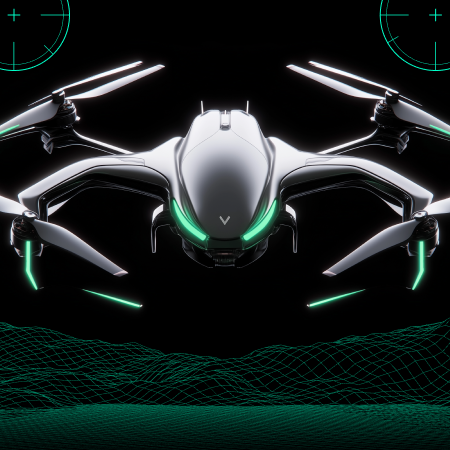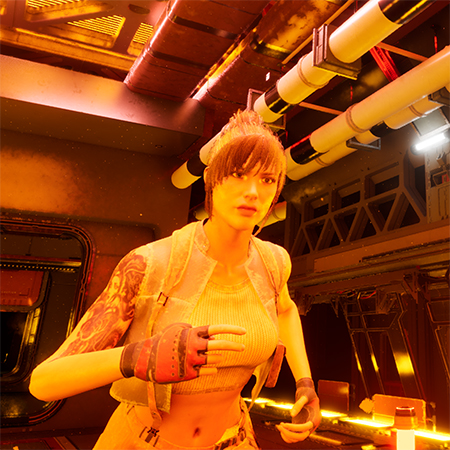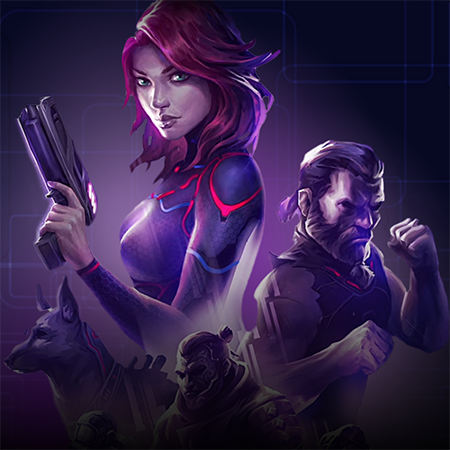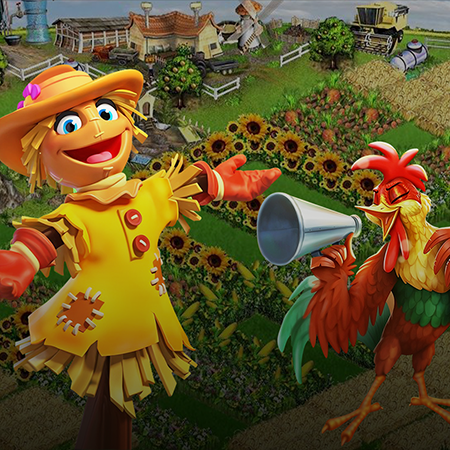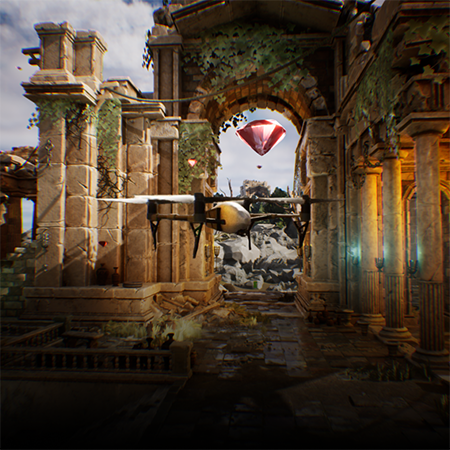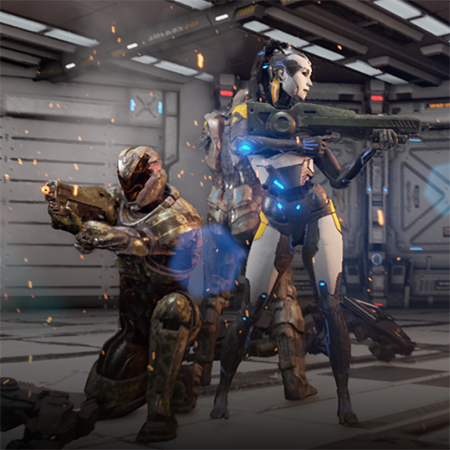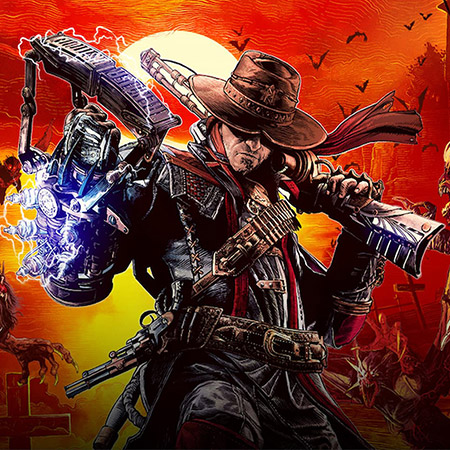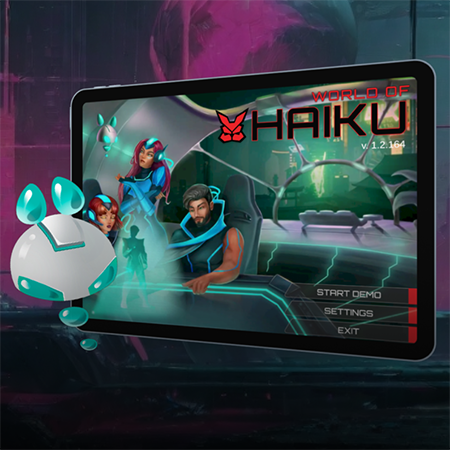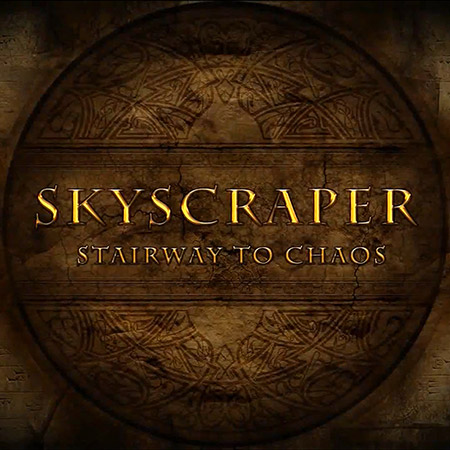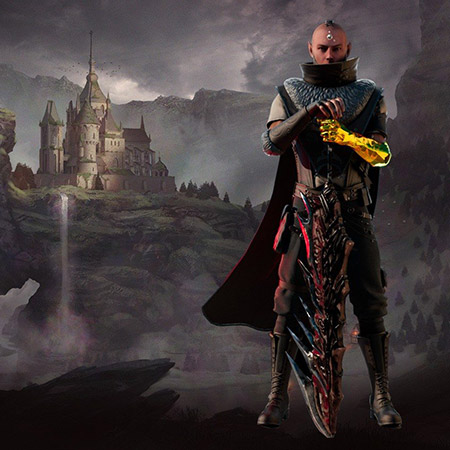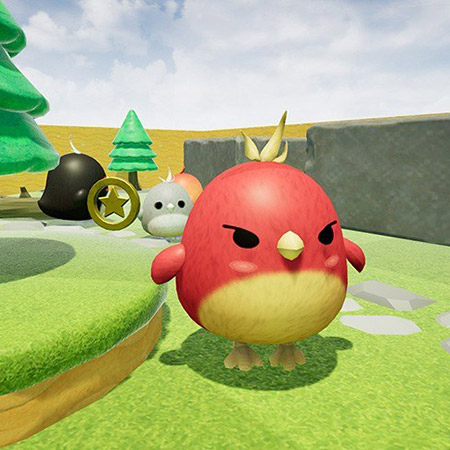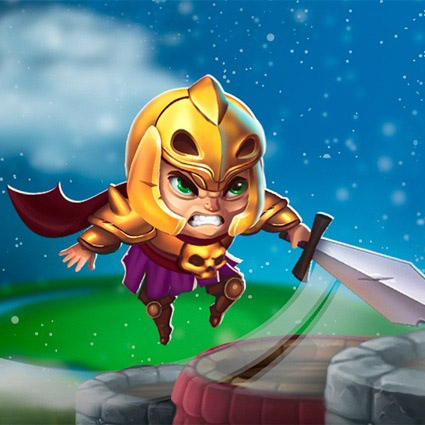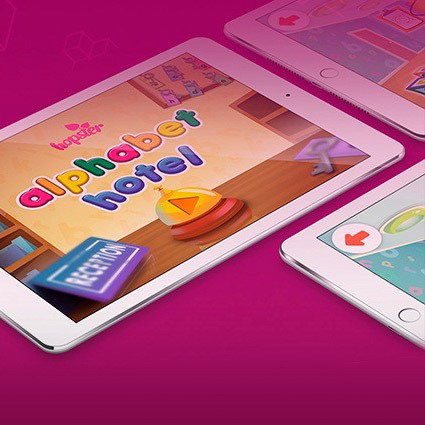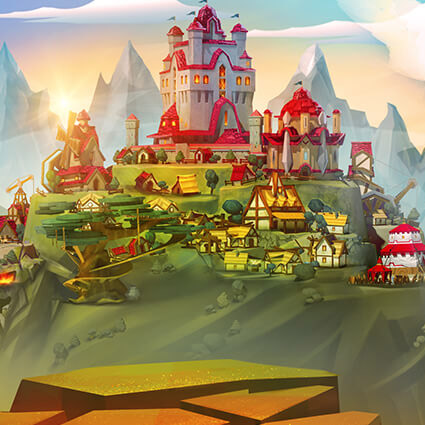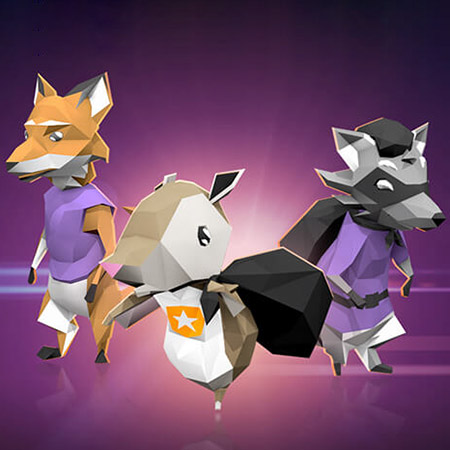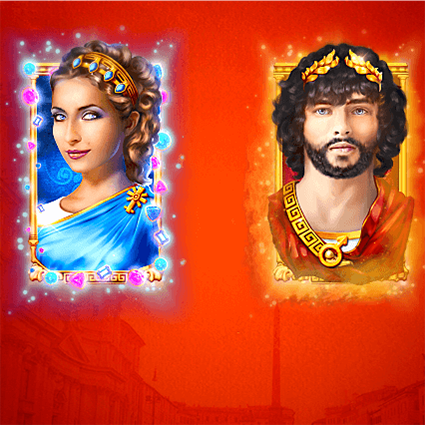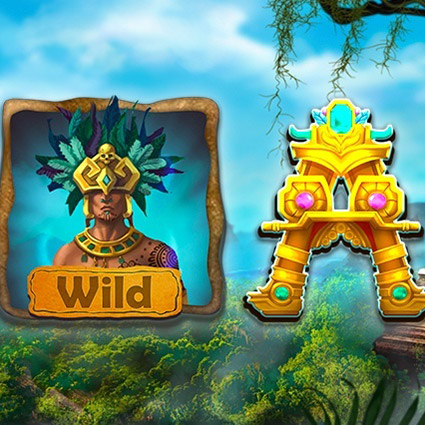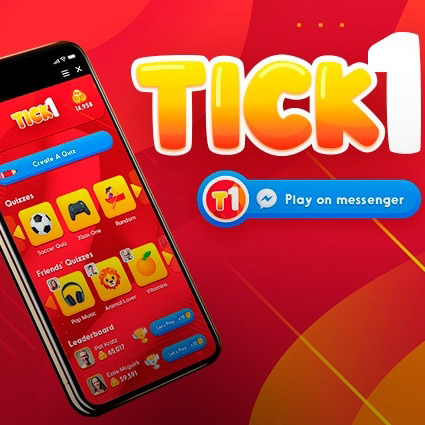Is Unity good for game development? It definitely is, and statistics only back this statement up: Unity dominates the mobile game development market, as well as it has become a basis for some sensational games like Among Us, Pokémon Go, and Disco Elysium.
Dozens of factors make this game engine one of the leaders in its segment. The capacities of Unity are wide, namely its compatibility with different platforms and VR/AR devices. Let us share our perception of Unity's features and opportunities on behalf of an experienced Unity game development studio.
Why Unity is good for game development
Unity is one of the most popular game development engines. Studios all over the world choose Unity for mobile game development, as well as for the creation of cross-platform games. As the main Unreal Engine competitor, Unity is an incredibly powerful tool that has at least six pillars that make it truly great:
- fast prototyping and development process compared to other engines;
- multi-purpose built-in functionality (editor, scripting, graphics & physics, etc.);
- both 2D and 3D game creation, as well as interactive simulation support;
- portability to more than 19 platforms, including VR, AR, and MR devices;
- growing community (documentation, support, forums, asset store, etc.);
- flexible monetization opportunities for mobile devices (Unity Ads).
Key Features of The Unity Engine for Game Development
While Unity has grown beyond its initial purpose and become a popular technology within other industries like filmmaking, automotive, construction, etc., it’s still heavily associated with GameDev. And this is not a surprise, considering the specifics of Unity features that are tailored for efficient and straightforward game development. Let’s contemplate them.
1. Language support
As for now, Unity uses C# as its primary language with Mono, the .NET framework. In the past, the engine used Boo as its scripting language and UnityScript, a Boo-based implementation of JavaScript, eventually deciding to deprecate them both. So, in 2023, the main functioning language in Unity is C#, which is perfect for performance-driven games thanks to the automatic memory management.
2. Prefab system
With Unity, you are able to create reusable assets that allow for fast game development. Unity’s Prefab system allows you to create complex hierarchies that are easy to maintain, configure, and update across multiple levels. A prefab asset is a template that should not necessarily be identical to the previously created one.
You can easily edit and create new prefab assets from the existing ones. When it comes to asset modification, the extension is done by association and not by hierarchical inheritance, which allows for logic and code consistency. Moreover, when an object is edited, it doesn’t break the whole chain of objects of the same type but simply modifies the current object without messing up the code. Unity’s Prefab system significantly speeds up the prototyping and overall development process.
3. Physics
Unity has two separate physics engines for 2D and 3D games, helping developers focus on the right editor without trying to find a turnaround playing with a single multi-purpose editor.
The main difference between the two physics engines is that the 2D engine is purely customized for 2D app development and has a higher frame rate results (FPS) showing ~4x increase in performance.
Keeping in mind that the use of a 3D physics engine for 2D app development would slow down the development process, it’s good to have two separate engines, allowing developers to switch between the two depending on the type of the project.
4. Graphics
High-quality graphics in Unity can be achieved thanks to real-time global illumination, physically-based shaders, dynamic lights, and a solid particle control system (for water, fire, etc.) using scripting.
However, most of the graphical achievements in Unity can be bound to the Asset Store, which enables developers to sell their own frameworks and plugins. Among the most popular plugins are “Amplify Color,” “FXAA Fast Approximate Anti-Aliasing,” “Time of Day,” “Relief Terrain Pack,” “Alloy Physical Shader Framework,” and others.
Unity regularly gets new versions, and as of 2023, the latest update introduced scalable graphics that allows to make the cinematic more realistic and add more real-life effects, like underwater effects, local fog, or skies with dynamic lighting.
5. Animation
Unity does a great job animating simple things, however, Unity’s animation is used for GameObjects animation and not for physical-level animations. In other words, Unity’s animation is used to influence the gameplay while other software like Blender is used to create complex characters or object animation.
There are several benefits of Unity’s animation:
- you can influence the performance and quality of the animation by changing animation parameters directly increasing or decreasing the animation frame rate;
- you can Implement various logic to different animated parts;
- you can state machine animation for different states of animation like breathing, flowing, etc.
6. Troubleshooting and real-time editing
Unity has great troubleshooting and real-time editing systems. Considering current market demands, it’s crucial to have a quick and responsive troubleshooting system empowered with real-time editing which allows trimming the project according to the client’s vision and demands.
Unity developers find especially useful systems and modules such as:
- gizmos (for visual debugging);
- real-time editor and the ability to extend the editor;
- object-component design for its clear logic.
What Games Can Be Developed with Unity?
Unity is a versatile engine with the support of numerous platforms. Your opportunities are endless, the question is the level of skills of the development team, available budgets, and requirements for the game you are planning to release. Hence, you can easily initiate the creation of 2D or 3D games in any genre you need, from FPS to RPG with an open world, or even tap into the latest trends and create NFT games with Unity.
At the same time, you can see that GameDev studios mainly prefer Unity for mobile game development. The cross-platform capabilities of the engine allow for deploying games to different OS and devices without rewriting the code and tailoring it to the specific demands of every platform, which is definitely a huge benefit for mobile game developers. If you’re interested in pushing a Unity build to the browser, you can read more on our WebGL game development page. Unity also provides a massive variety of tools for efficient mobile development, while still achieving high-quality graphics on mobile devices.
We should also mention a controversial topic that causes a lot of discussion: is Unity a good game engine for developing AAA games? Being blockbusters' counterparts in the gaming industry, triple-A games attract the most attention from both gamers’ and GameDev communities. The majority of such projects use proprietary, custom-built engines, so you will need to do some scrolling on Steam or PlayStation Store to stumble upon a hit game on Unity.
However, it doesn’t imply that Unity is not suitable for AAA game development. Quite on contrary, nowadays, Unity provides everything you might need to release a money-making game, and projects like Cuphead, Cities: Skylines, and Genshin Impact are proof of that.
The main reservation regarding AAA game development in Unity is difficulties for a large team to efficiently work with the technology. Luckily, these issues are already left in the past thanks to additive loading that allows splitting the level up in ways to fit a standard workflow.
Game-Ace Success Case: Hexagonium, an MMO Game Built with Unity

Hexagonium is a cross-platform MMO medieval/fantasy game backed up with well-thought 2D and 3D art design. The project managed to attract more than 10 thousand users within the first week after release. Unity capacities combined with other tools allowed us to create a fast, stable, and intriguing game.
How to Develop a Game in Unity
To develop a game in Unity, you need to go through the same process as with any other game engine. Your goal is to create a competitive, captivating game with a fun factor that will win the attention and eventually the loyalty of the audience, so you can grow and maintain your user base. The next pipeline will help you to achieve that goal.
1. Conceptualization
The first step is the most important as it will create a foundation for your future game. You need to understand what you are building before you actually start to code or design. Start with small simple questions: what is the genre of your game, will it be 2D or 3D, who is your audience, when and where the game takes place, who are the characters, etc. The answers will help you determine if your idea is viable.
2. Information gathering
In the next stage, your goal is to take your high-level concept, divide it into much smaller parts, study them, and create a plan for the actual production. You need to think over every aspect of your future game, starting from major things like the storyline and programming language to little details like color pallets or sound design. Here, you need the involvement of all departments (writers, engineers, designers, artists, etc.) in order to come up with a prototype of your game.
3. Production
Production is the most time- and resource-consuming stage. The timeline depends on various factors, but mainly on the complexity of your game. The more in-game features you want to have and the more characters you want to introduce, the more time it will take for your development team to prepare everything and assemble it into one piece. However, with experienced tech specialists on your team, you increase your chances to avoid major failures and disruptions.
4. Testing
Quality assurance is another essential part of the game development process. Testers spend hours playing the game and stress-testing it to detect any possible bugs and report them to developers who fix them before the game is released to the public. Besides its tech aspects, the game is also tested for its fun factor to ensure that it is rewarding for players and isn’t too simple or too complex to finish.
5. Marketing
To introduce their games to potential users, studios start marketing their new games before their initial release. Usually, publishers present a game trailer or several trailers showing gameplay and displaying the concept of the game through cinematics. There are other promotional means, like social media, websites, gaming conferences, collaborations with influencers and bloggers, etc. An efficient marketing strategy helps to attract users, but the quality of the game is the reason they will stay.
While every step has its significance for the game's success, some of the processes can be outsourced to a third-party game development vendor. Experienced service providers will be able to back you up with relevant expertise, e.g., 3D game development with Unity, as well as help you navigate the GameDev industry and avoid mistakes you might make. Outsourcing is a great way to acquire lacking tech skills and knowledge, as well as relieve your in-house team from excessive workload.

Unity vs. Unreal for Game Development
Unity is often compared with Unreal, another popular engine for game development. Each of them has its own pros and cons, which makes them best suited for different purposes. Here are the main aspects where Unity and Unreal clash.
Unity |
Unreal |
|
| Programming language | C# | C++ |
| 2D support | Advanced | Limited |
| 3D support | Advanced | Advanced |
| VR/AR support | Advanced | Limited |
| AI support | Limited | Advanced |
Unreal Engine is known for its VFX quality, gaining an edge over Unity in this aspect. Hence, when chasing photorealistic visuals, game developers might lean towards Unreal. However, Unity wins in terms of popularity and short learning curve, meaning that it is much easier and faster to assemble a team of game developers who work with Unity. Unity also has a bigger number of supported platforms which is a big benefit for those who aim for cross-platform gaming projects.
As for mobile game development, Unity is also in the lead for both Android and iOS devices. A lot of developers prefer it due to the ease of Unity for 2D game development, as well as simple time scaling down to low-end hardware.
Leverage the Capabilities of Unity with Game-Ace
Unity is one of the leading game engines on the market with constant support and updating that polish the technology and secure its growth. Unity is fully suited to deliver high-quality AAA games and games with innovative interactive experiences through VR, AR, or MR.
Still not sure if you should use the Unity engine for game development? Feel free to contact our team to learn how Unity can help you reach your goals. As an experienced game development studio, we know how to unlock the full power of this game engine and efficiently leverage it to the benefit of your game development project.
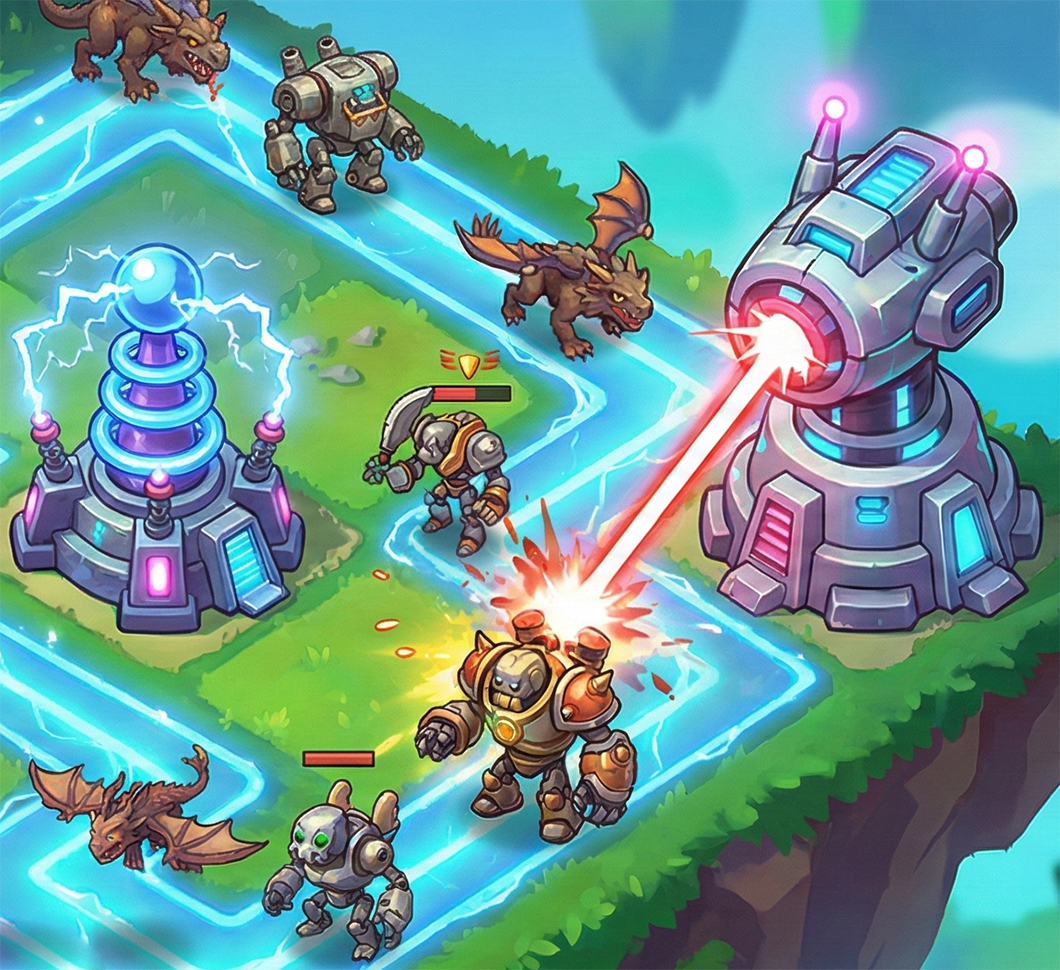 The Architect’s Dilemma: Engineering the Next Generation of Tower Defense
The Architect’s Dilemma: Engineering the Next Generation of Tower Defense 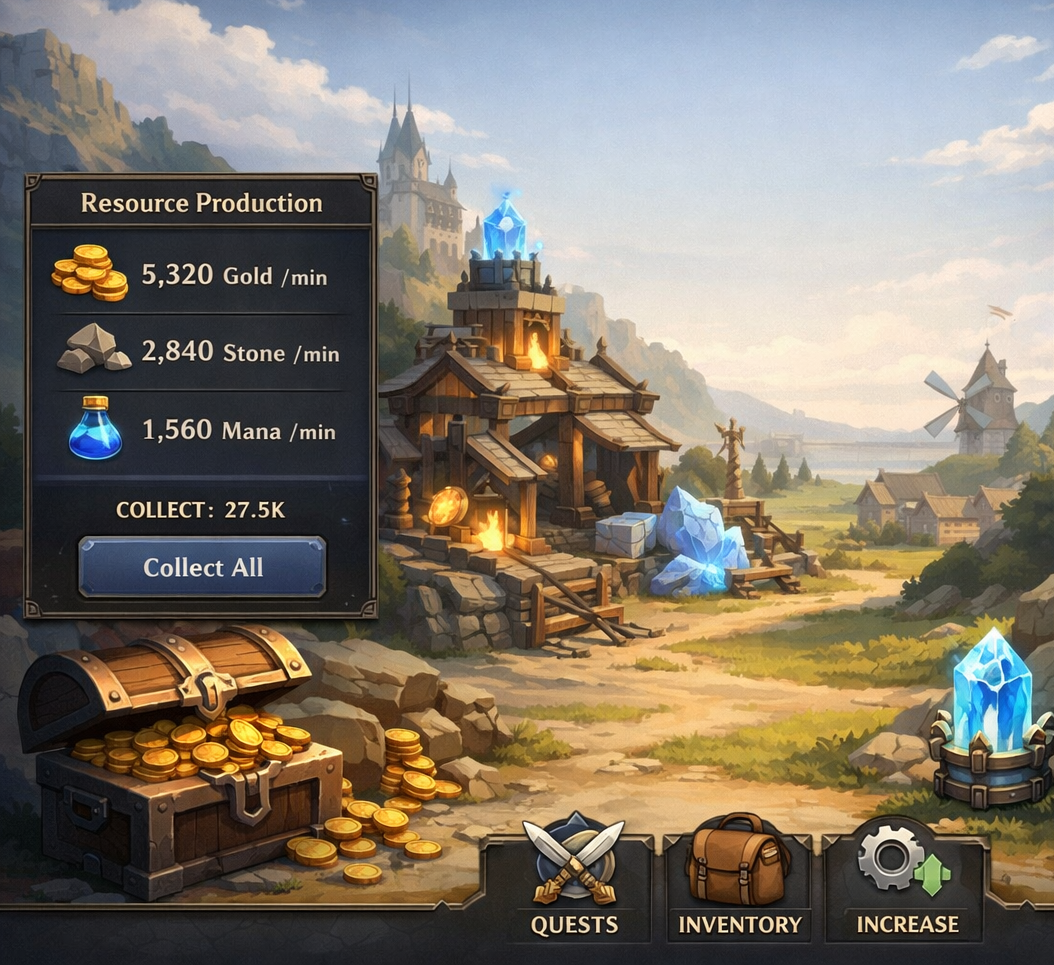 How to Turn Idle Game Development into a Scalable, Long-Term Revenue Product
How to Turn Idle Game Development into a Scalable, Long-Term Revenue Product 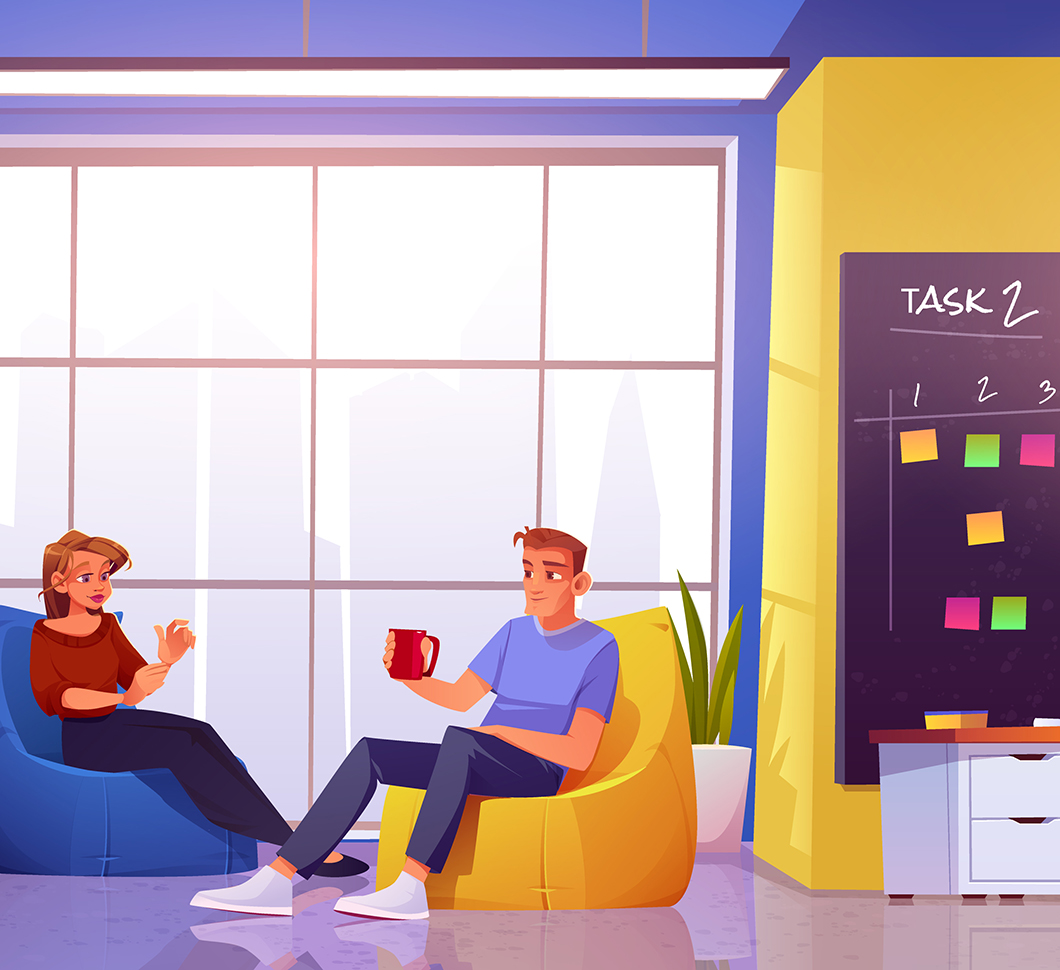 Key Trends Shaping Gamification in Recruitment for 2026 and Beyond
Key Trends Shaping Gamification in Recruitment for 2026 and Beyond  How to Create Crypto Casino Games the Right Way
How to Create Crypto Casino Games the Right Way 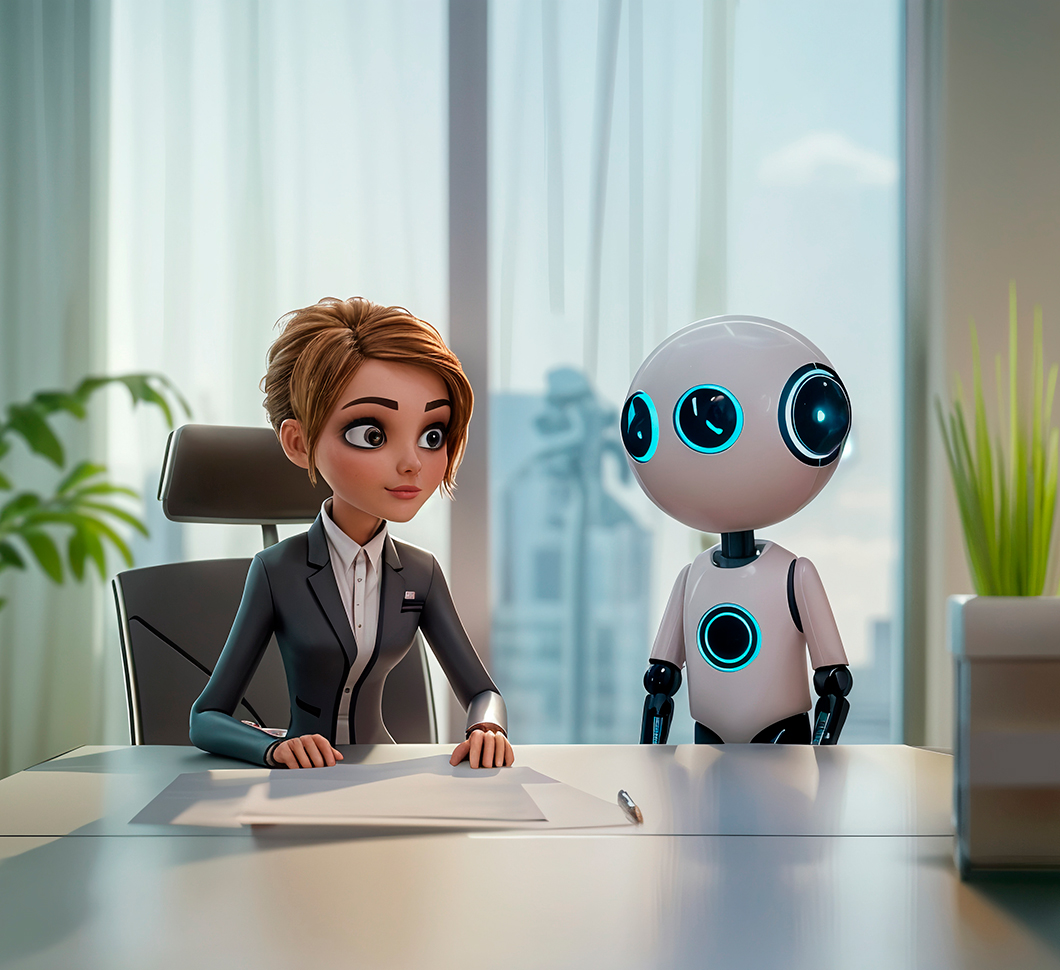 AI Recruitment Games: From Real-Time Assessments to Better Hiring Outcomes
AI Recruitment Games: From Real-Time Assessments to Better Hiring Outcomes 